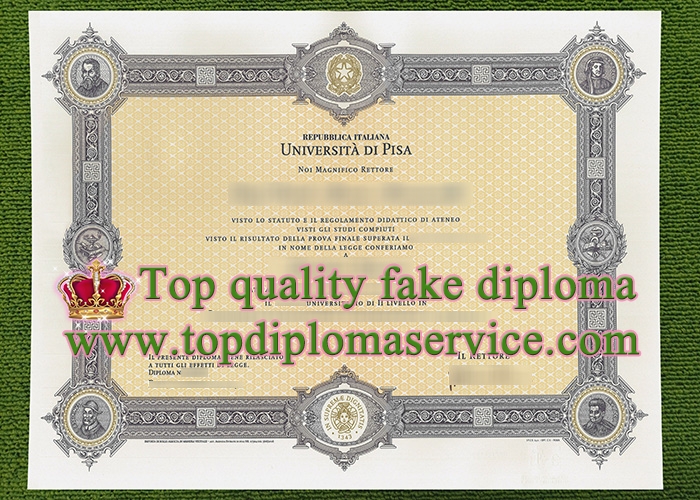
How to make a fake Università di Pisa diploma, fake University of Pisa diploma, buy fake UniPi certificate, order fake diploma Italy. The University of Pisa (Italian: Università di Pisa, UniPi), officially founded in 1343, is one of the oldest and most prestigious universities both in Italy and in Europe.
The University of Pisa was officially founded in 1343, although various scholars place its origins in the 11th century. It is certain, however, that from the middle of the 12th century Pisa had a “Universitas” in the original sense of the word, that is, a group of students who gathered around masters. It was during this period that Leonardo Fibonacci was born and worked. He was one of the greatest mathematicians in history who, through his work, synthesized the spirit and processes of Greek geometry and the tools of Arabic mathematics for the first time in Europe.
The papal seal “In Supremae dignitatis”, issued by Pope Clement VI on 3 September 1343, granted the Studium in Pisa the title of Studium Generale with various exclusive privileges, making it universally recognised. In medieval times, the Studium Generale was a higher institute of education founded or confirmed by a universal authority, namely the papacy or the empire. Pisa was among the first European cities to vaunt a papal attestation, followed by Prague in 1347 and Heidelberg in 1386. At the outset in Pisa, lessons in Theology, Civil Law, Canon Law and Medicine were established.
The first years of the new Studium were particularly difficult, although there is documentary evidence that shows persistent academic activity with a slow recovery starting in 1355.
The end of the 14th century and the beginning of the 15th century saw Pisa and its Studium heading towards a slow death. The war, which had allowed the Florentines to conquer the city, was so socially and economically damaging that it made preserving even the most essential academic activity impossible.


